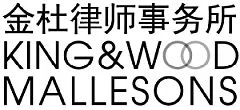- within International Law, Government, Public Sector and Strategy topic(s)
- with Senior Company Executives, HR and Inhouse Counsel
- in United States
- with readers working within the Metals & Mining, Oil & Gas and Telecomms industries
By King & Wood'sTrademark Practice
The mark "日本電產" (Japan Densan in Chinese Characters) is also the short form of the enterprise name of its owner Nippon Densan Corporation (now Nidec Corporation). As a trade name, it is unique and distinctive. However, when being filed for registration as a trademark, "日本電產" ("Japan Densan in Chinese Characters") must also bear the distinctiveness that is required of a trademark.
"日本" ("Japan") is the country name, and "電產"("電": electricity; "產": industry or production) directly describes the industry field of the designated goods, therefore, the mark is devoid of distinctiveness as a trademark. The applicant attempts to claim that the mark has acquired distinctiveness through sufficient use, but the evidence it provided can only prove that the same sign has been used as the shortened trade name of the company, which can not prove that the same mark has ever been used in the form of a trademark on its designated goods.
Beijing First Intermediate People's Court erred in failing to differentiate between the use of a sign as a trademark and the use of a sign as a trade name, and confused the nature of their respective usage. Beijing High People's Court has thus reversed the mistake of the lower court.
The content of this article is intended to provide a general guide to the subject matter. Specialist advice should be sought about your specific circumstances.

